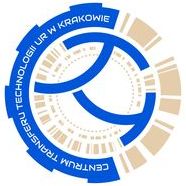Scope
Scope
Landscape architecture
- landscape protection methods
- landscape creation
- conservation areas
- regional identity
- spatial plans and landscape
- modern landscape
- appropriate ways of future development of landscape
Spatial planning
- methods used in spatial order reaserch and shaping
- problem areas in spatial policy
- delimitation methods
- spatial planning and development
- analysis of the conditions being a result of current: land designation, land use, utilities, environmental conditions, requirements of environmental protection, nature and cultural landscape
- implementation of classification methods, regionalisation and typology to the research on the extent of spatial development, and delimitation of problem areas
GIS
- implementation of GIS by local governments as a tools for spatial development and land management, monitoring, development and promotion of the community
- GIS for local environment and landscape
- Tourism and civil society analysed with GIS
- GIS for environment, spatial planning and social projects
Regional development
- Characteristics of chosen organisation and management methods (organisational learning, information management, project management, strategic management, business process management, human resources management)
- methods of organisation and management used by municipalities
Environmental engineering and water management
- recultivation and development of degraded land
- rural areas development
- nature conservation and shaping
- envirnmental policy and procedures fot implementation of environment management systems
- symulation analyses and measurement of basic features characterising environment,
- meteorology, hydrology, hydrogeology, geotechnics for water management
- role of small water retention in water management in rural areas
- influence of catchment development on the quality of water resources
Land consolidation
- land consolidation as a tool of spatial development
- reasons for the choice of land consolidation area
- rural areas development
- sources of information, maps used for management in cases of spatial conflicts and rural areas development
- features of rural areas significant for spatial conflicts
- safe rural area in the age of globalisation


